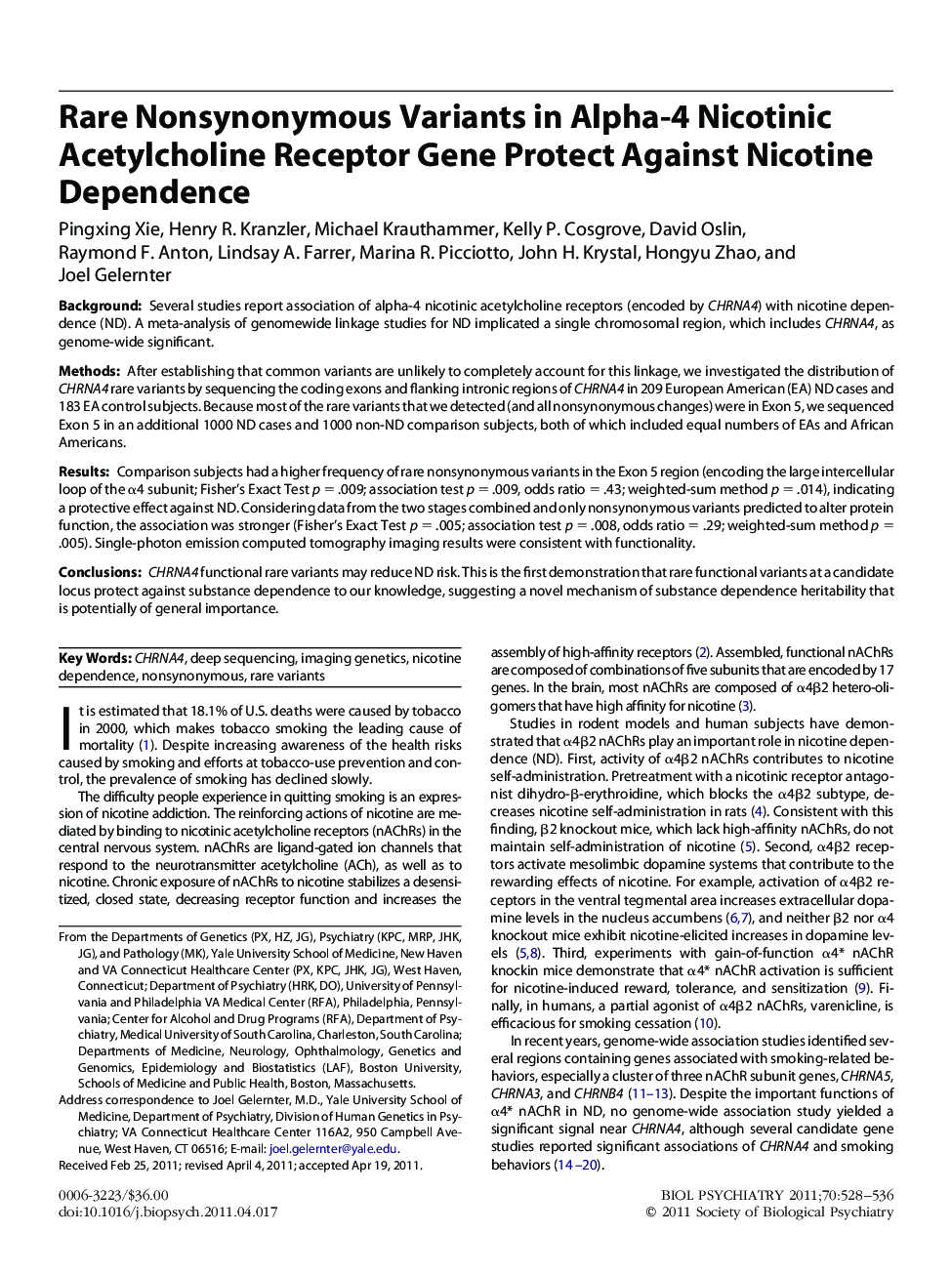| Article ID | Journal | Published Year | Pages | File Type |
|---|---|---|---|---|
| 6227941 | Biological Psychiatry | 2011 | 9 Pages |
BackgroundSeveral studies report association of alpha-4 nicotinic acetylcholine receptors (encoded by CHRNA4) with nicotine dependence (ND). A meta-analysis of genomewide linkage studies for ND implicated a single chromosomal region, which includes CHRNA4, as genome-wide significant.MethodsAfter establishing that common variants are unlikely to completely account for this linkage, we investigated the distribution of CHRNA4 rare variants by sequencing the coding exons and flanking intronic regions of CHRNA4 in 209 European American (EA) ND cases and 183 EA control subjects. Because most of the rare variants that we detected (and all nonsynonymous changes) were in Exon 5, we sequenced Exon 5 in an additional 1000 ND cases and 1000 non-ND comparison subjects, both of which included equal numbers of EAs and African Americans.ResultsComparison subjects had a higher frequency of rare nonsynonymous variants in the Exon 5 region (encoding the large intercellular loop of the α4 subunit; Fisher's Exact Test p = .009; association test p = .009, odds ratio = .43; weighted-sum method p = .014), indicating a protective effect against ND. Considering data from the two stages combined and only nonsynonymous variants predicted to alter protein function, the association was stronger (Fisher's Exact Test p = .005; association test p = .008, odds ratio = .29; weighted-sum method p = .005). Single-photon emission computed tomography imaging results were consistent with functionality.ConclusionsCHRNA4 functional rare variants may reduce ND risk. This is the first demonstration that rare functional variants at a candidate locus protect against substance dependence to our knowledge, suggesting a novel mechanism of substance dependence heritability that is potentially of general importance.
